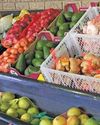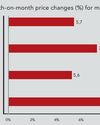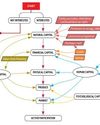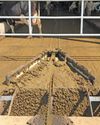
Some of the world’s leading vehicle markets have already committed to, and in some cases legislated, a timeline for the phaseout of internal combustion engine (ICE) vehicles. Additionally, in many markets, the transition to battery electric vehicles (BEVs) over hybrid electric vehicles (HEVs) and plug-in hybrid electric vehicles (PHEVs) is being incentivised to accelerate the shift towards zero-emission vehicles (ZEVs).
While these measures effectively guarantee a future for BEVs, their adoption has recently encountered the proverbial bump in the road. Despite global sales reaching 10 million units in 2023 for a share of just over 11%, this growth was lower in terms of both forecast and unit sales growth than in 2022. This has been attributed to a lack of affordable BEVs in most markets except China, the removal of incentives in several key markets, and shortcomings in public charging infrastructure. At the same time, PHEVs reversed a declining trend to increase their share of the global plug-in market (BEV + PHEV) from 27,2% to nearly 30%, likely a confirmation of ongoing customer concerns regarding public charging and range. This has resulted in the postponement or cancellation of some BEV projects and delayed the switching of some factories from ICE to BEV production.
Against this background, the question needs to be asked: what has happened to the use of hydrogen as an alternative to BEVs? After initially being touted as one of the viable alternatives to achieving zero vehicle emissions, and offering similar refuelling times and range to ICE vehicles, less than a handful of hydrogen-fuelled vehicles are currently on sale. Before exploring the reasons for this, it’s helpful to understand the different types of hydrogen-powered vehicles – hydrogen internal combustion engines (HICE) and fuel cell electric vehicles (FCEVs).
HICE VS FCEV DRIVETRAINS
This story is from the June 21, 2024 edition of Farmer's Weekly.
Start your 7-day Magzter GOLD free trial to access thousands of curated premium stories, and 9,000+ magazines and newspapers.
Already a subscriber ? Sign In
This story is from the June 21, 2024 edition of Farmer's Weekly.
Start your 7-day Magzter GOLD free trial to access thousands of curated premium stories, and 9,000+ magazines and newspapers.
Already a subscriber? Sign In

Agripreneur wins top award for butternut coffee
Bloemfontein-based agripreneur Chantelle de Bruyn has achieved global recognition.

Final fresh produce inquiry pins low level of transformation on farming environment
The Competition Commission released its final report on the Fresh Produce Market Inquiry in mid-January, maintaining that transformation in the industry was being impeded by a lack of support for emerging farmers.

Illegal fishing in Australia reveals market gap for farmed sea cucumber
Illegal fishing practices in Australia have revealed a large market opportunity for sea cucumber farming.

An introduction to the Ford Ranger Tremor
In December 2024, the CAR magazine team received the Ford Ranger Tremor to accompany them through the festive season and into the new year. Oliver Keohane looks at what the Tremor is all about.

A farmer's experience with bush encroachment
Farmer David Addenbrooke has worked in the Zimbabwean beef industry for around four decades. Here, he relates his experience with bush encroachment and offers farmers some advice on battling this scourge.

Good rains boost SA's summer grain crop prospects
This week, Absa AgriBusiness analyses several market dynamics and shares its expectations for local grain and oilseed prices over the coming months.

A self-help tool for getting young people engaged in agriculture
The active engagement of the youth in agriculture is pivotal to the sustainability and growth of the sector. Empowering them with the necessary support is key to nurturing future farmers who are equipped to overcome future challenges like the effects of climate change.Dr Primrose Madende, researcher at the Department of Agricultural Economics at the University of the Free State

Rallying to the cackle of this raucous bird
The gregarious and territorial Green Wood-hoopoe, also known as the Red-billed Wood-hoopoe, is extremely vocal and is often heard before it is seen. And for very good reason,

SA coffee lovers can expect price increase
South African coffee prices are expected to spike sharply in the foreseeable future because of failed crops in the country’s main importing countries: Brazil and Vietnam.

Paving the way for a greener dairy industry
The dairy industry is often criticised for its environmental impact, but a new innovation called DESTiny aims to empower farmers to take control of their carbon footprints. Riana Reinecke, the tool's developer, explained to Glenneis Kriel how it works and how farmers can benefit from it.